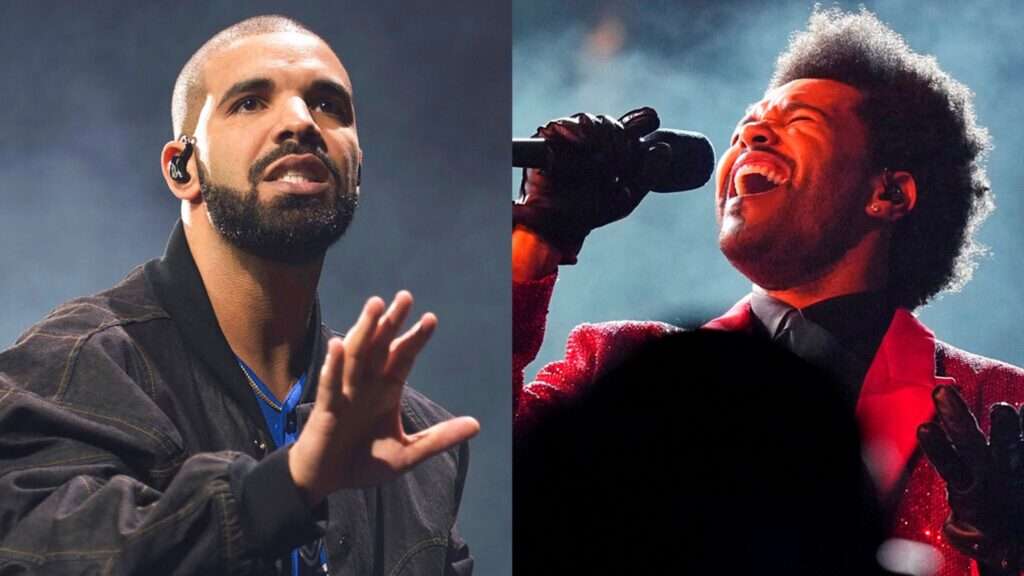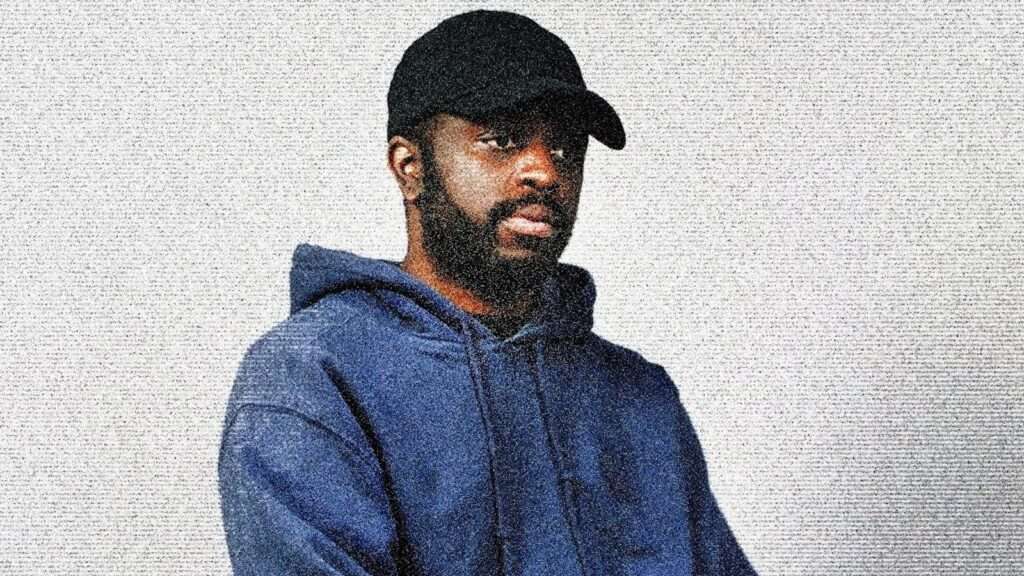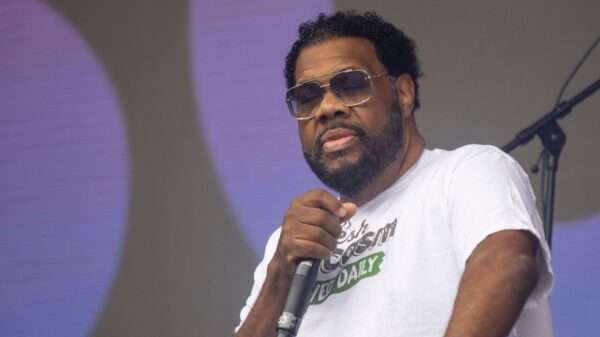Can you tell the difference between a Drake original and a track featuring an AI-generated voice?
That’s the problem – most people probably couldn’t.
Social media has been awash with convincingly produced songs appearing to feature the voices of some of music’s biggest stars – but they’ve been created using artificial intelligence.
It’s prompted the Deezer streaming service this week to announce it’s building a set of “cutting edge tools” to detect AI-generated content on its platform and “weed out illegal and fraudulent content”.
It follows a song featuring the cloned voices of Drake and The Weeknd going viral in April, resulting in the track having to be removed from streaming sites.
And it seems unrelenting, with more and more songs cropping up online.
Many are so convincing that they appear as if they’re unreleased tracks that have been leaked on the internet – and others include cover songs from artists who are no longer among us.
Here’s a fake Michael Jackson singing I Feel It Coming by The Weeknd.
Twitter Due to your consent preferences, you’re not able to view this.
Others seem a bit more out there – but nonetheless, sound incredibly real.
Here’s Kanye West appearing to take on a country number in this AI-generated song.
And here’s Ariana Grande seeming to lend her voice to a song in a whole new language – Punjabi.
How does it work?
AI platforms are able to learn from vocals and original music content that is given to it by humans and then “ingested”, according to Universal Music Group.
It says the AI now is so advanced that it can recreate melodies and voices within seconds.
It means any music producer with the know-how can transform any vocal they have so it imitates the textures and tones of the most recognisable voices in world music.

‘Regulate it before we’re all finished’
There have been mixed reactions among artists, with some saying it highlights the issue of “formulaic” pop songs and others ready to embrace the technology.
Trip hop collective Massive Attack tweeted in response to a fake Drake track and posed this question: “Is the discussion ‘should AI recreate music?’ or is the discussion ‘Why is contemporary music so homogenised & formulaic that it’s really easy to copy?'”
While jazz musician and producer Alfa Mist told Sky News he didn’t think it could play a role in his music as he needs “human error” in his songs.
“I need a human being’s experiences because that plays into the music,” he says, but added that he’d only consider using AI to “aid my creative process” when it comes to mixing and mastering for example.
“I’m not sure what I think about AI, I’m not really for it, or against it – I just kind of think it’s inevitable,” he says. “It’s here – you can’t really undo it, and you probably can’t ban it either because it’s just here, but I do think that [with] things you can’t ban, you should regulate.
“When tools get made, they can be of use or they can be exploited… regulate it before we’re all finished.
“I’m not scared of AI, I’m scared of human beings, so it all depends on who the human being is that’s doing it – people are going to be able to elevate and progress using AI.”
Hip hop artist Hit-Boy, who’s worked with Jay-Z, Kanye West and Drake, seemed to embrace it as he tweeted a clip of himself playing his own track featuring an AI Kanye.
He wrote that creators were “really in the future” and that “it’s only gonna get more realistic” – but added that artists had to “figure out ways to make it useful within your work flow”.
And the singer Grimes is on board with the AI tracks too.
“I’ll split 50% royalties on any successful AI generated song that uses my voice,” she tweeted. “Same deal as I would with any artist I collab with. Feel free to use my voice without penalty. I have no label and no legal bindings.”
She said she liked the idea of being “fused” with a “machine” and added: “I like the idea of open sourcing all art and killing copyright.”
Labels are ‘sweating a little bit’
Fans shared mixed reactions to the barrage of new music emerging online, with some dismayed at the prospect and others just happy to hear a new song from what appears to be Rihanna.
Music critic and YouTuber Anthony Fantano – known as the “internet’s busiest music nerd” – told followers on TikTok what he thought about the AI Drake and Weeknd song, saying that its emergence was “not good”.
“I don’t know who this is not going to be good for entirely right now at this moment but I don’t think it’s very good,” he says.
“There’s a lot of people talking about ‘oh yeah this is going to, like, you know turn the industry upside down, this AI deepfake voice stuff – the labels are in trouble now’ – and for sure it’s got them sweating a little bit – if it didn’t I don’t think they’d be going to the lengths that they are to have this song taken down off of streaming.
Spreaker Due to your consent preferences, you’re not able to view this.
“But once they figure out the recipe for this thing, just like with streaming, it’s going to be a pay day for them.
“There’s going to be so many new Juice WRLD [the US rapper who died in 2019] songs and you’re not even going to know where they’re coming from.”

Which side of history will stakeholders be on?
Universal Music Group says the use of AI technology poses a deeper question about “human creative expression”.
It says despite “embracing new technology”, the training of generative AI and the availability of infringing content means that people will have to choose “which side of history” they want to be on – on the side of artists and fans or “deep fakes, fraud and denying artists their due compensation”.
It says: “These instances demonstrate why platforms have a fundamental legal and ethical responsibility to prevent the use of their services in ways that harm artists.”
Deezer chief executive Jeronimo Folgueira says it’s becoming harder to distinguish the authentic from the AI, with more than 100,00 new tracks being uploaded to his platform daily.
He hopes a new tagging system detecting and identifying AI content will reduce “fraudulent activity” and lead to a “remuneration model that distinguishes between different types of music creation”.
“AI can be used to create new incredible content and I believe there are massive benefits of using generative AI, but we need to ensure it’s done in a responsible way,” he says.
UK Music, which represents the music industry in Britain, has since signed up to the Human Artistry Campaign, which sets out rules on the responsible use of AI.
The body’s chief executive Jamie Njoku-Goodwin says: “The AI revolution will have a transformative impact on the music industry – our task is to meet the huge challenges it presents in some areas, while making the most of the potential opportunities it could offer in others.
“As we navigate these issues, it’s vital that our approach is underpinned by clear and consistent principles, not just here in the UK but globally.”
He hopes guidelines will “ensure AI technologies are developed in a way that supports human culture and artistry rather than eroding it”.
While record labels and streaming services fret over how to adapt to a technology which looks like it’s here to stay, singer Grimes is finding her own way of monetising the “experiment”, allowing fans access to her GrimesAI “voiceprint” – and she could be providing a glimpse into a future parallel music industry.
She says that despite being “kinda stressed” that people are able to make possibly “better” Grimes-sounding songs than she does, she says it’s “also the most wonderfully poetic way to die and respawn in another career”.
















































